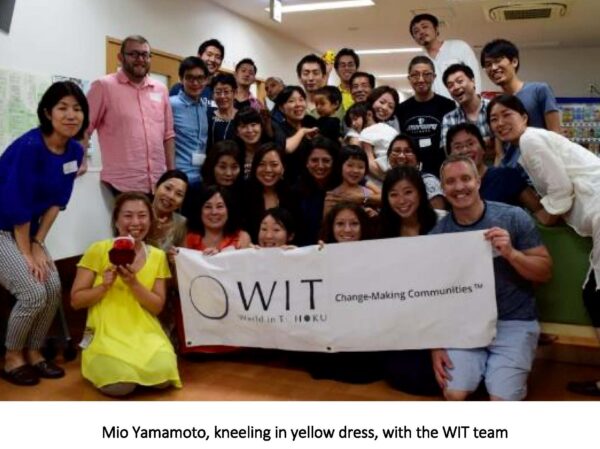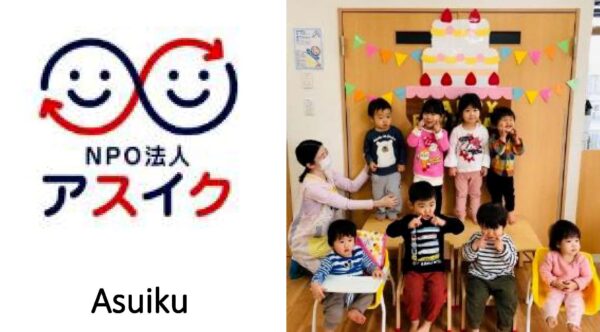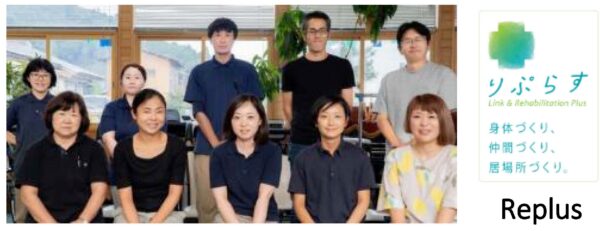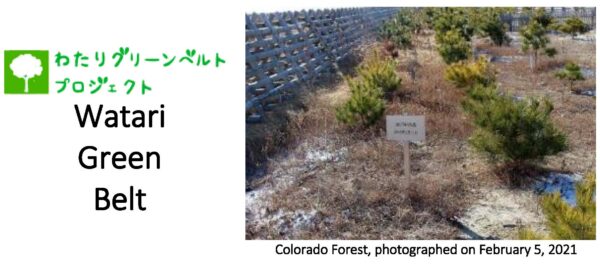On March 11, 2011, a devasting earthquake and tsunami hit the Tohoku region of Japan, resulting in nearly 16,000 deaths, more than 6,000 injuries, and thousands of people still missing from the region. Five years later, Sakura Foundation presented Tohoku Today, an informative and entertaining event which brought together community members and more than a dozen Japanese and Japanese American (JA) organization sponsors to fundraise for three Japanese organizations who were assisting with the recovery from the events of 3.11.11. To commemorate the event on its 10-year anniversary, we asked Mia Yamamoto of WIT, who made a compelling presentation at the event, to obtain updates from the organizations which were featured at Tohoku Today in 2016.
From Mio Yamamoto:
Ten years have passed since the Great Eastern Earthquake of 2011. Many social entrepreneurs and nonprofit organizations were born out of the terrible disaster to address people’s needs and create a resilient and sustainable society since then. Thanks to your generous support at the Tohoku Today Event, all three organizations who received your contributions – Asuiku, Replus, and Watari Green Belt Project – are thriving and continue to make a difference:
From Asuiku
We were founded after the Great East Japan Earthquake to help children living in evacuation sites and temporary housing. As we realized that child poverty was becoming more apparent due to the earthquake, we shifted our focus from just supporting disaster-affected children to child poverty, and started a program for children living in low-income households. We currently provide educational and other support programs for at-risk middle school students. We have also developed other programs to address child poverty, including a free school for children without a place due to not attending or dropping out of school, meal service for children, daycare and preschools, and children centers.
In Tohoku, the problem of poverty has worsened due to the Great East Japan Earthquake a decade ago and has been worsening yet again due to the spread of COVID-19. These two events have not just inflicted damage upon the Tohoku region, they have also expanded support networks and ecosystems. We anticipate that new, positive signs for the future are being born amid this challenging environment. We hope that there will come a time when the path of Tohoku so far will serve as a reference for other regions and countries.
From Replus
Since our start in 2013, Replus has provided a preventive nursing care program, community health program, and a program assisting people to balance work and care duties. We are committed to creating a society where people from children to seniors, regardless of whether they have diseases or disabilities, can live well and healthy lives. To achieve that, we are expanding our services with the focus on nursing and disability welfare, community health, and assisting people with balancing work and care duties.
Ten years since the earthquake, tangible, “hard” aspects of recovery have progressed on the ground, but at the same time, people’s lives have become polarized and those who are struggling are struggling even more. On top of that, the coronavirus pandemic has worsened people’s isolation around the world. We will do our best to share our experience and what we have learned with other regions of Japan and the world.
From Watari Green Belt
We started our activities after the 3.11.11 Great East Japan earthquake to restore the coastal tidewater control forest on the eastern shore of Watari town that was washed away in the tsunami. We started planting trees in 2015 and were able to plant 44,000 trees in 14.1 hectares of town-owned forests over the course of five years. Since 2020, we have been conducting maintenance and management, including taking care of trees, clearing undergrowth, and eradicating non-native species. Since the maintenance and management of coastal tidewater control forests have to continue in perpetuity, we want to nurture our successors and create a home base. We are aiming to expand our sales of peanuts that we have cultivated as a local specialty product to obtain funds to maintain an office and prove a gathering place for agricultural experiences. Additionally, we are also considering implementing plans that incorporate peanut harvesting experiences.
We want to convey our sincere gratitude for the support and cooperation of people from many countries during the Great East Japan earthquake. In August 2011 after the disaster, we received encouraging words from then Vice-President Biden during his visit to Miyagi prefecture, and in December 2012 we held a hot-air balloon festival in Watari town, Miyagi prefecture thanks to the support from Huawei Co. in China. In 2016 we planted trees in the “Colorado Forest” with contributions we received from Sakura Foundation’s Tohoku Today event. WIT representative Mio Yamamoto planted the trees. We are grateful! grateful! grateful!
We appreciate these updates and thank Mio Yamamoto and WIT for their hard work and support of the recovery efforts in Tohoku.
These organizations still need our support. Please visit the following websites to learn more about them and to make a donation:
WIT (World in Tohoku) http://worldintohoku.org/
Asuiku https://asuiku.org/
Replus https://replus.mystrikingly.com/
Watari Green Belt http://watari-grb.org/





Leave A Comment